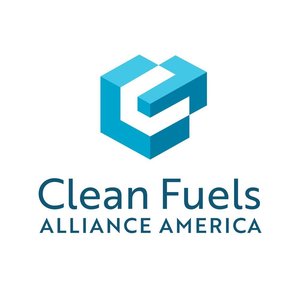Clean Fuels applauds Biden's support for homegrown biofuels

April 13, 2022
BY Clean Fuels Alliance America
On April 12, Clean Fuels Alliance America applauded President Biden’s announcements of new Higher Blends Infrastructure Incentive Program grants and a pathway to use canola oil to produce renewable diesel and jet fuel. Clean Fuels also expressed gratitude to USDA for making HBIIP grants available to support biodiesel use by railways, which will help reduce shipping costs for essential consumer goods. The actions will increase consumer access to better, cleaner fuels like biodiesel that reduce transportation costs.
Kurt Kovarik, vice president of federal affairs for Clean Fuels, stated, “With current diesel fuel shortages and high prices for foreign oil, homegrown biodiesel and renewable diesel are crucial to keep the economy moving. U.S. biodiesel and renewable diesel producers are working hard to provide Americans a better, cleaner replacement for fuel made from imported crude oil. On behalf of Clean Fuels’ members, I applaud the president’s announcement and the administration’s steps to build lasting energy security with homegrown biofuels.”
Advertisement
“We applaud the Administration’s strategy to support growth for homegrown biofuels that are critical to expanding Americans’ options for affordable fuel in the short-term and to building real energy independence in the long-term,” Kovarik continued. “We greatly appreciate EPA’s commitment to approving new RFS pathway petitions for renewable fuels that can provide greenhouse gas benefits as well as reduce reliance on foreign oil.”
To date, USDA’s HBIIP grants have supported more than two dozen biodiesel projects that will increase consumer access to better, cleaner fuel by nearly 1 billion gallons per year. The increased use of biodiesel in place of petroleum will reduce greenhouse gas emissions by 9.4 million metric tons per year, at a cost of just $2.67 per ton in the first year.
A forthcoming study from World Agricultural Economic and Environmental Services (WAEES) shows that without the supply of U.S.-produced biodiesel and renewable diesel to meet heavy-duty transportation fuel demand, diesel prices would be 4% higher on average over the past several years. In 2021, the U.S. market for biodiesel and renewable diesel reached 3.2 billion gallons.
Advertisement
The U.S. biodiesel and renewable diesel industry supports 65,000 U.S. jobs and more than $17 billion in economic activity each year. Every 100 million gallons of production supports 3,200 jobs and $780 million in economic opportunity. Biodiesel production supports approximately 13 percent of the value of each U.S. bushel of soybeans.
Related Stories
Avfuel Corp., the leading independent supplier of aviation fuel and services, is expanding its sustainable aviation fuel (SAF) footprint with the addition of a new, strategic supply point in Denver, Colorado—the first of its kind in the region.
CVR Energy Inc. on July 30 reported its renewables segment achieved increased throughput during Q2 despite unplanned downtime but reported a net loss of $11 million. The company expects to retroactively claim the 45Z credit for volumes produced.
Total U.S. operable biofuels production capacity expanded in May, with gains for renewable diesel and a small decrease for ethanol, according to data released by the U.S. Energy Information Administration. Feedstock consumption was up.
SAF-producer XCF Global Inc. on July 28 announced it has signed an exclusive, non-binding indication of intent (IOI) with a renewable fuels infrastructure and feedstock solutions company based in the western U.S.
The European Commission on July 28 approved a €36 million ($41.07 million) Danish state aid scheme designed to encourage airlines operating in Denmark to use sustainable aviation fuel (SAF) on domestic routes.
Upcoming Events










